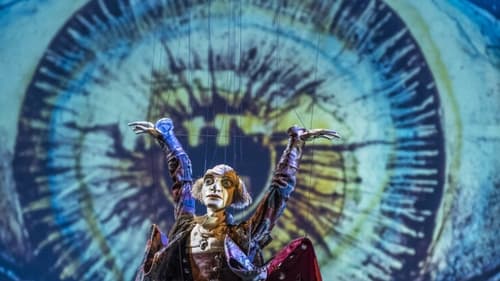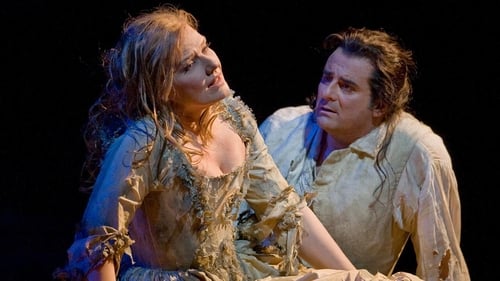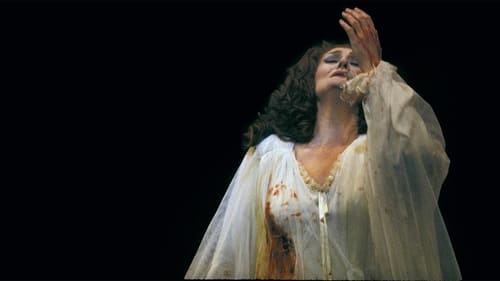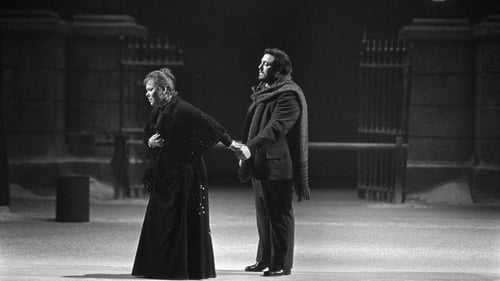Paul Plishka
출생 : 1941-08-28, Old Forge, Pennsylvania, USA

In Luther's beer-cellar, lusty singing extols the virtues of beer and wine. For this evening, the Muse decides to deflect the poet Hoffmann's attention from amorous escapades, so that he will devote himself entirely to his art. Hoffmann tells of the three unhappy loves of his life: Olympia, Antonia and Giulietta.

Benoît/Alcindoro
가난하지만 예술을 사랑하는 젊은 보헤미안들의 이야기. 화가 마르첼로와 시인 로돌포가 사는 다락방에 철학자 콜리네와 음악가 쇼나르가 찾아온다. 이들은 가난하지만 즐겁게 살아간다. 어느 크리스마스 이브, 로돌포는 촛불을 빌리러 온 이웃집 미미와 우연히 만나 한눈에 사랑에 빠진다. 그러나 얼마 지나지 않아 미미는 자신이 폐병으로 죽어가고 있다는 사실을 알게 되고 병세는 점점 심각해진다.

Sacristan
Puccini’s musical thriller of lust, murder, and politics is one of the most dramatically riveting operas in the repertoire. Luc Bondy’s production, with sets by Richard Peduzzi and costumes by Academy Award-winning designer Milena Canonero, opened the Met’s 2009–10 season. Karita Mattila stars as the beautiful and dangerously impulsive singer Floria Tosca. Marcelo Álvarez is her lover, the painter Cavaradossi, a political enemy of the powerful chief of police, Scarpia (George Gagnidze), who wants Tosca for himself.

Doctor Grenvil
Keeping with a long-standing tradition, Renee Fleming kicks off the new season at the Met with scenes from Verdi's Traviata, Massenet's Manon, and Strauss' Capriccio. She is joined by Ramon Vargas and Thomas Hampson.

Benoit/Alcindoro
Puccini’s evergreen paean to young love and the bohemian life has captivated generations of Met-goers through Franco Zeffirelli’s iconic production. Movie theater audiences for the high-definition transmission of this staging got to see it with fresh eyes in a touching performance starring Angela Gheorghiu and Ramón Vargas as the frail seamstress and her poetic lover.

An innkeeper
One of today’s most compelling singing actresses, Karita Mattila takes on the irresistible role of Manon Lescaut, the headstrong young woman torn between a life of luxury and the call of her true love: the Chevalier des Grieux, played by Marcello Giordani. The young Puccini lavished some of his most sensual music on this early hit, conducted here by the Met’s beloved James Levine.

Mathieu
This live from the Met telecast from October 1996 of Giordano’s infrequently performed verismo gem is an absolute pleasure to watch and listen to and I highly recommend it. Nicholas Joel’s production is extremely elegant while at the same time being simple and uncluttered. Act I, for example, is dominated by an enormous gilt-framed mirror precariously tilted. I assume that it is a metaphor for the imminent downfall of the decadent aristocracy at the party given by the Contessa di Coigny. The costumes designs by Hubert Monloup are terrific. The prerevolutionary costumes in Act I are simply stunning each one individually tailored for the choristers and major performers.

Himself
This tribute to James Levine, first shown on PBS, was only part of that glorious evening. Here we have the whole performance, up to three hours. I could not stop watching these discs. Let me say this much; Levine has done for the Met, making it the premier opera house in the world, what Karajan did with the Berlin, making it one of the finest orchestras ever. So sit back and enjoy.

Giuseppe Verdi's opera of religion, revenge and redemption gets the star treatment in this 1993 Metropolitan Opera production conducted by James Levine and starring Plácido Domingo as the cuckolded man of God at the center of the tale. Sharon Sweet sings the role of Domingo's adulteress wife and Vladimir Chernov plays the vengeful father in this rarely staged gem directed by Giancarlo del Monaco and filmed by Brian Large.

Sir John Falstaff
It is to composer and librettist Arrigo Boito and his constant pestering of the octogenarian Verdi that there remained within him one last great comedy fighting to get out that we owe this absolute miracle of an opera. Produced in 1893 as Verdi turned 80 there is much in this masterpiece that can be identified as a modernist neoclassical work. The use of short motifs instead of long arioso melodic lines, the spry and reduced orchestral textures and the lack of a single 'stand and deliver' dramatic declamatory aria all serve to make this more of a 20th century work than an example of 19th century late-Romanticism.

Pimène (voice)
A possible impostor torments a newly crowned medieval czar who may have ordered the real successor's death.

Timur
The Franco Zeffirelli production of Puccini's "Turandot", recorded live at the Metropolitan Opera in April, 1987. Éva Marton stars as Turandot, with Plácido Domingo as Calaf, Leona Mitchell as Liù, Paul Plishka as Timur, and Hugues Cuenod as L'Imperatore Altoum. James Levine conducts.

Jacopo Fiesco
The ambiguities of Verdi’s theatre are particularly clear in his baritone roles, among which is that of Boccanegra, corsair turned doge of Genoa and the troubled observer of the conflicts that tore apart 14th century landowners and peasants. An eminently political opera in which power struggles are interwoven with family conflicts, Simon Boccanegra echoes the life of its composer – the man who championed the cause of Italian unification and overcame the loss of his wife and children.

Jacopo Fiesco
Live from the Metropolitan Opera: Simon Boccanegra

Narbal
Berlioz’s colossal masterpiece requires stupendous forces—dozens of soloists, enormous chorus, orchestra and ballet, a superb conductor who understands the uniqueness of the score—plus a production that does visual justice to the work. “A stupendous achievement” was one critic’s assessment of Peter Wexler’s inventive production. And with James Levine’s wizardry galvanizing the marvelous all-star cast, this is truly a gem. Plácido Domingo is the legendary hero Aeneas, Jessye Norman the obsessed prophetess Cassandra, and Tatiana Troyanos is Queen Dido, who commits suicide when Aeneas leaves her.

Raimondo
This telecast offers a rare opportunity to see the legendary Joan Sutherland in the role that first catapulted her to international stardom. She drove audiences wild by the way her opulent voice caressed the music’s long phrases and sprinted effortlessly through the fiendish runs, trills, embellishments and stratospheric high notes. One of the glories of the operatic world, her portrayal of Donizetti’s hapless heroine is a multifaceted and moving characterization. The incomparable tenor Alfredo Kraus is Edgardo, the man Lucia loves but cannot have. (Performance taped November 13, 1982. Broadcasted September 28, 1983.)

Alidoro
The Prince, Don Ramiro (who has changed places with his valet, Dandini), meets Cenerentola and they are instantly attracted to each other. When the Philosopher, Alidoro, later takes Cenerentola (dressed in magnificent clothing) to the palace, Dandini (still posing as the prince) tries to talk of love to her, but Cenerentola rejects him, saying that she is in love with his 'valet'. Ramiro, who has overheard this comment, is overjoyed, and immediately proposes to her, but Cenerentola says that he must first seek her out and then, if he still felt the same way, she would marry him. She gives him one of a matching pairs of bracelets, telling him to look for its companion on her right arm (she then leaves the palace). Ramiro ends the masquerade, and he and Dandini resume their true identities. The Prince then sets out on his quest - little realising that destiny, in the form of a violent thunderstorm, is about to take a hand in the affair.

King Philip
Don Carlo (1980) Metropolitan Opera. Verdi / italian. King Philip's court is plagued by rebels, family squabbles and intrigue. The Spanish Inquisition tries to exert its influence. The tension finally ignites at the King's coronation, where heretics are to be burned at the stake

Colline
Puccini’s heartbreaking story of young love in the garrets of Belle Epoque Paris has attracted many famous singers through the years. But with James Levine at the helm and the starry duo of Luciano Pavarotti and Renata Scotto as Rodolfo and Mimi, every bit of emotion in the score pours across the footlights and seduces the audience. In this case, the audience was in the millions since this was the very first in the “Live from the Met” series of telecasts. The evocative production is by Fabrizio Melano, designed by Pier Luigi Pizzi.

Talpa

















